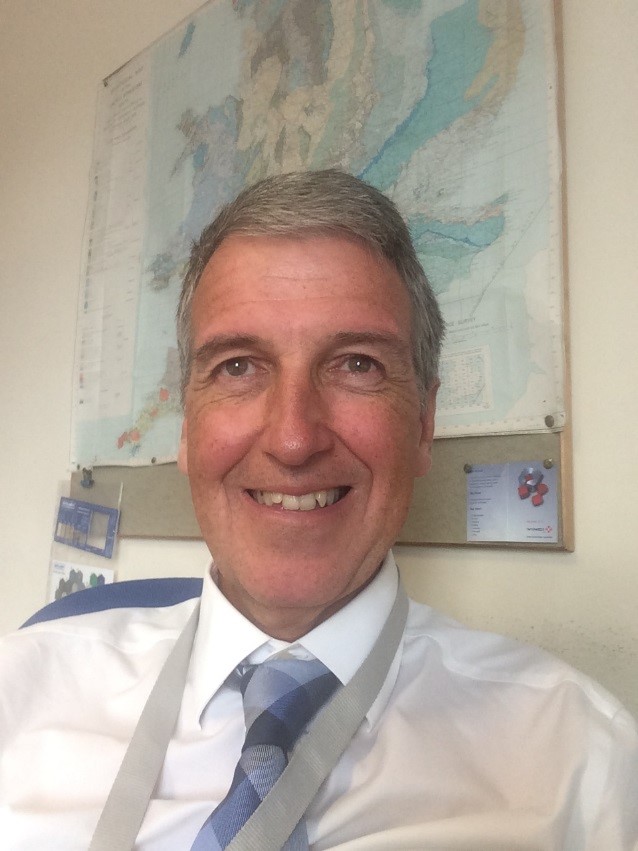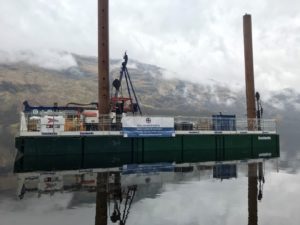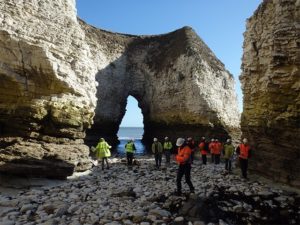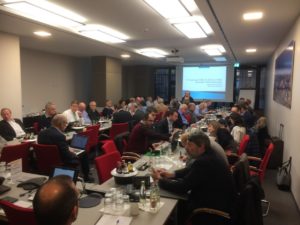
Full Name: Matthew Baldwin BSc, MSc, C.Geol, FGS, RoGEP Advisor
Job Title: Technical Director
Company: Soil Engineering
With over 36 years working in the engineering geology sector I have become experienced at what works with regard to investigating the ground. For the last fifteen years however I have spent much of my time helping to educate others via university MSc course lecturing, in house and external training and conference presentations.
My main interests lie in helping academia understand what industry wants within degree courses, as well as in getting published and publicised the new generation of ‘Eurocode’ documents. I would like good ground investigation to be recognised as the cost saving and risk reducing tool that it really is!
What or who inspired you to join the geotechnical industry?
Chance! I had always wanted to work in mineral prospecting and had a job lined up in Namibia in 1981. At the last minute however, I found out that the previous two mine geologists had disappeared and so I turned the job down! Instead I took an MSc in Engineering Geology at Durham University and the rest is as they say is history!
What does a typical day entail?
I don’t have typical days, and that is what keeps me ‘fresh’ and interested in the industry. Due to the number of international and national committees I sit on (including technical, standards and trade bodies), my calendar is planned several months in advance. When I add in the in house training courses I run, presentations to clients and attendance at various seminars and conferences, my weeks are quite crowded.
I suppose it is often the ‘unknowns’ that provide most excitement and challenge though. These range from calls for technical advice both from within my company, but also from across the wider Bachy Soletanche group, to looking at appropriate sampling regimes for challenging geology, to requests for mentoring and training of employees.
Are there any projects which you’re particularly proud to have been a part of?
Sadly those projects that retain a special place in my memory tend to be those from the distant past. This is partly because ground investigation in the 1980’s and early 1990’s was less adversarial than it is now, and also because there appeared to be more genuine interest in both the industry and the subject matter, ie the ground!
The NIREX (low level nuclear repository) investigations were in my view unparalleled, insofar as they offered engineering geologists the chance to see a vast array of intrusive GI techniques as well as the full array of in situ testing and sampling. So many GI’s over the past 20 years have done the bare minimum and there now exists a whole generation of engineering geologists who aren’t aware of the techniques that we can and should be using to understand the ground.
In addition I would have to cite the investigations in the Irish Republic for the motorways that we now take for granted. For many of these major GI’s we were having to produce site specific logging and sampling schemes to deal with the encountered geology, and again the supervisory teams learnt so much of value.
What are the most challenging aspects of your role?
Trying to help educate an industry where there is a lot of ignorance about ground investigation! There are various reasons why the procurers and to some extent the clients professional team on site (civil engineers, structural engineers and architects etc), don’t appear to have the knowledge / experience that would enable them to ensure ground investigations were designed and executed correctly. I could fill several pages on this subject!
All too often we see incorrect drilling / sampling techniques being proposed, inappropriate in situ testing, or no in situ tests, and then to cap it off the clueless scheduling of laboratory testing.
Although I have spent the last couple of decades banging the drum in relation to the importance of GI procurers knowing ‘their stuff’, this would seem to have largely fallen on deaf ears.
The other big challenge I have as part of the international committee involved with the updating of Eurocode 7, is getting practitioners to see the benefits of using the standard and the various supporting documents, numerous as they are!
What AGS Working Group(s) are you a Member of and what are your current focuses?
As immediate past chairman of the AGS I am involved with the senate and the executive, both of which are the decision and ratification parts of the association. I am however part of the business practice working group and firmly believe that this committee has done much good work over the past few years.
Both mine and the BPWG immediate focus is on making the AGS relevant and accessible to the younger end of the industry. It is vital that we get both graduates and undergraduates sharing their experiences and learning via contact with the AGS and the vast talent and experience pool that resides within it.
What do you enjoy most about being an AGS Member?
The AGS members share the same common goal of wanting the industry to provide a quality service via member companies that also take health and safety in the work place seriously. Because the members of the various AGS working groups all share these aims, every time we meet, I know that we are all looking at how to advance the industry in a controlled and professional manner.
What do you find beneficial about being an AGS Member?
Personally I know that I can contact other AGS members for advice / commentary on new industry initiatives and that I will get a reasoned response. From a company perspective, AGS membership is a ‘quality mark’ and helps Soil Engineering along with other member companies differentiate themselves from others in the market place.
Why do you feel the AGS is important to the industry?
The AGS is the only trade body that represents contractors, consultants and suppliers and then speaks with one voice for all their interests. Because of the ‘knowledge pool’ that the AGS enjoys via its membership, the association is able to speak with authority on a wide range of technical issues. It has working groups to whom both other parts of industry and indeed the government via the HSE listen to.
What changes would you like to see implemented in the geotechnical industry?
Ever since I started working in the industry some 36 years ago, we have collectively complained about the overall state of ground investigations. Despite numerous initiatives aimed at improving standards, the industry is in my view no better than it was 40 years ago. This is largely thanks to the plethora of small GI companies that do not provide the same level of quality or health and safety standards as the larger companies. And yet through a lack of understanding that cheaper isn’t better, the procurers of GI’s are happy to employ them because they are cheap!
We need to move to a situation akin to the American system where building projects require ‘fit for purpose’ GI’s, or they won’t be insured. I have tried via a joint venture with the FPS to engage with UK insurers, but without luck so far. I genuinely believe however that either this or government legislation (unlikely) is what we need.
Soil Engineering overwater investigations on Loch Lomond
Training employees to log the Chalk with help from Rory Mortimore
Working in Berlin with European Colleagues on the next version of Eurocode 7
This Q&A was featured in the September/October issue of the AGS Magazine.


